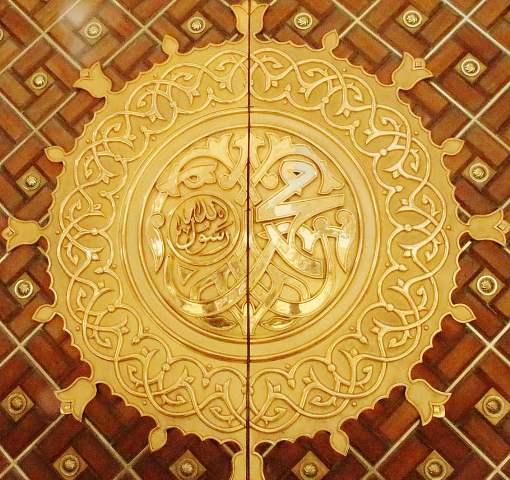The story of Prophet Ibrahim (AS)—Abraham, peace be upon him—is a timeless narrative of unwavering faith, sacrifice, and devotion. Revered as one of the greatest Prophets in Islam, his life is a beacon for all who seek closeness to Allah (SWT). From his miraculous birth in a society steeped in idol worship to his ultimate test of sacrificing his beloved son, every chapter of his life is filled with lessons on conviction, patience, and submission to the Divine Will.
The Birth of Ibrahim (AS) Amidst Idol Worship
Ibrahim (AS) was born in ancient Babylonia, in the city of Ur, present-day Iraq—a society dominated by idol worship and polytheism. His father, Azar, was a respected idol sculptor, deeply entrenched in the prevailing religious customs. From his earliest years, Ibrahim (AS) questioned the logic of worshipping lifeless statues, observing his father carve idols from stone and wood, then witnessing people prostrate before them.
“And [mention, O Muhammad], when Abraham said to his father Azar, ‘Do you take idols as deities? Indeed, I see you and your people to be in manifest error.’”
(Qur’an 6:74)
Despite pressure from his family and community, Ibrahim (AS) never wavered in his belief in the One True God. He challenged his father and people, asking, “Do these idols hear you when you supplicate? Or do they benefit you, or do they harm?” (Qur’an 26:72-73). His relentless pursuit of truth set him apart from a young age.
Breaking the Idols: A Defiant Stand for Tawheed
As Ibrahim (AS) grew, so did his resolve to confront the falsehood of idol worship. During a festival, when the townsfolk left for celebrations, Ibrahim (AS) entered the temple and destroyed all the idols except the largest one. He left the axe hanging on its neck, making a powerful statement to his people.
“He said, ‘Rather, this—the largest of them—did it, so ask them, if they should [be able to] speak.’”
(Qur’an 21:63)
When confronted, his people were left speechless, realizing the futility of their worship. But pride blinded them, and they demanded punishment for what they saw as blasphemy.
Facing King Namrud: The Debate of Life and Death
Ibrahim’s (AS) mission soon brought him face to face with Namrud (Nimrod), the mighty king who claimed divinity. Their debate is immortalized in the Qur’an:
“Have you not considered the one who argued with Abraham about his Lord [merely] because Allah had given him kingship? When Abraham said, ‘My Lord is the one who gives life and causes death,’ he said, ‘I give life and cause death.’ Abraham said, ‘Indeed, Allah brings up the sun from the east, so bring it up from the west.’ So the disbeliever was overwhelmed [by astonishment], and Allah does not guide the wrongdoing people.”
(Qur’an 2:258)
This exchange exposed the king’s arrogance and the limits of human power, while affirming the supremacy of Allah (SWT).
Thrown into the Fire: The Miracle of Divine Protection
Unable to silence Ibrahim (AS) with arguments, his people resorted to violence. They built an enormous fire and cast him into its flames. At this critical moment, Angel Jibreel (AS) (Gabriel) appeared, offering help. Ibrahim (AS), however, replied:
“Allah is sufficient for me, and He is the best disposer of affairs.”
(Sahih Bukhari)
He placed his trust solely in Allah (SWT), saying, “Hasbunallahu wa ni’mal wakeel”—Allah is enough for us, and He is the best disposer of affairs. Allah (SWT), in His infinite mercy, commanded the fire:
“We said, ‘O fire, be coolness and safety upon Abraham.’”
(Qur’an 21:69)
Miraculously, the fire became cool and harmless, and Ibrahim (AS) emerged unscathed—a testament to the power of tawakkul (reliance on Allah).
Migration and Marriage: The Journey with Sarah (RA)
After this miracle, Ibrahim (AS) was forced to leave his homeland. Accompanied by his devoted wife, Sarah (RA), and his nephew, Lut (AS), he migrated first to Harran, then to Palestine, and later to Egypt. Throughout these journeys, Ibrahim (AS) continued to call people to the worship of Allah (SWT).
Sarah (RA) was his first wife, a woman of faith and patience. Despite years of longing, she remained childless. In Egypt, Sarah (RA) was gifted Hajar (RA), who would later become Ibrahim’s (AS) second wife.
The Birth of Ismail (AS) and Ishaq (AS): Joy After Patience
Longing for progeny, Ibrahim (AS) prayed:
“My Lord, grant me [a child] from among the righteous.”
(Qur’an 37:100)
Allah (SWT) answered his supplication. Through Hajar (RA), Ibrahim (AS) was blessed with Ismail (AS) in his old age. Later, through Sarah (RA), he was granted Ishaq (AS), fulfilling Allah’s promise of a righteous lineage:
“So We gave him good tidings of a forbearing boy.”
(Qur’an 37:101)
The birth of his sons was a source of immense joy and gratitude, a reward for years of steadfast faith.
Leaving Hajar (RA) and Ismail (AS) in the Desert: Trust in Allah’s Plan
One of the most heart-wrenching episodes in Ibrahim’s (AS) life was Allah’s command to leave Hajar (RA) and infant Ismail (AS) in the barren valley of Makkah. With only a small supply of dates and water, he left them near the site of the future Kaaba.
When Hajar (RA) questioned him, Ibrahim (AS) did not answer until she asked, “Has Allah commanded you to do this?” He replied, “Yes.” She responded with unwavering faith, “Then He will not neglect us.”
“Our Lord, I have settled some of my descendants in an uncultivated valley near Your sacred House, our Lord, that they may establish prayer. So make hearts among the people incline toward them and provide for them from the fruits that they might be grateful.”
(Qur’an 14:37)
This act of submission laid the foundation for the city of Makkah and the annual Hajj pilgrimage.
The Ultimate Sacrifice: The Test of Slaughtering His Son
Years later, Ibrahim (AS) was tested again. He saw in a dream—repeatedly—that he must sacrifice his beloved son, Ismail (AS). Knowing that the dreams of prophets are revelations, he resolved to fulfill Allah’s command:
“And when he reached with him [the age of] exertion, he said, ‘O my son, indeed I have seen in a dream that I [must] sacrifice you, so see what you think.’ He said, ‘O my father, do as you are commanded. You will find me, if Allah wills, of the steadfast.’”
(Qur’an 37:102)
Both father and son submitted wholeheartedly. As Ibrahim (AS) prepared to carry out the sacrifice, Allah (SWT) intervened:
“We called to him, ‘O Abraham, You have fulfilled the vision.’ Indeed, We thus reward the doers of good. Indeed, this was the clear trial. And We ransomed him with a great sacrifice.”
(Qur’an 37:104-107)
A ram was sent from heaven to be sacrificed in Ismail’s (AS) place, commemorated today as Eid al-Adha.
Building the Kaaba: The Legacy of Monotheism
With Ismail (AS) by his side, Ibrahim (AS) was commanded to build the Kaaba—the first house of worship dedicated solely to Allah (SWT):
“And [mention] when Abraham was raising the foundations of the House and [with him] Ishmael, [saying], ‘Our Lord, accept [this] from us. Indeed You are the Hearing, the Knowing.’”
(Qur’an 2:127)
This sacred structure became the spiritual center for all Muslims, a symbol of unity and submission. The rituals of Hajj, including the Sa’i between Safa and Marwa and the sacrifice, trace their origins to the trials of Ibrahim (AS), Hajar (RA), and Ismail (AS).
Why Ibrahim (AS) Is Called Khalilullah—The Friend of Allah
Ibrahim (AS) is uniquely honored in the Qur’an as Khalilullah, the intimate friend of Allah (SWT):
“And Allah took Abraham as an intimate friend (Khalil).”
(Qur’an 4:125)
This title was earned through his unwavering faith, willingness to sacrifice everything for Allah, and his constant gratitude and submission. The Prophet Muhammad (ﷺ) said:
“Allah has taken me as a Khalil just as He took Ibrahim as a Khalil.”
(Sahih Muslim)
His life exemplified sincerity, trust, and love for Allah (SWT) above all else.
Frequently Asked Questions
1. Why did Allah command Ibrahim (AS) to sacrifice his son?
This was a supreme test of faith and submission, demonstrating absolute obedience to Allah (SWT). It serves as a lesson for all believers to prioritize Allah’s command over personal desires.
2. What is the significance of Ibrahim (AS) leaving Hajar (RA) and Ismail (AS) in the desert?
This act established the city of Makkah and the rites of Hajj. It is a story of trust in Allah’s wisdom and provision.
3. How did Ibrahim (AS) confront idol worship in his community?
He challenged the beliefs of his people, destroyed their idols, and debated with their king, all while maintaining patience and respect, even towards his father.
4. What lessons can we learn from Ibrahim’s (AS) trials?
His life teaches us about faith, patience, reliance on Allah, and the importance of family and sacrifice for a higher cause.
5. Why is Ibrahim (AS) so important in Islam?
He is a patriarch of monotheism, a model of submission, and his legacy is central to Islamic rituals and beliefs.
Contemporary Relevance: Lessons for Modern Muslims
The trials of Ibrahim (AS) are not relics of the past—they are blueprints for navigating the challenges of faith today. His courage to question falsehood, his willingness to stand alone for truth, and his trust in Allah (SWT) in the face of hardship are qualities every believer can emulate.
- Standing for Truth: In a world filled with pressures to conform, Ibrahim’s (AS) example inspires Muslims to uphold Tawheed and resist societal norms that conflict with faith.
- Trust in Allah: His reliance on Allah (SWT) during the fire and in the desert teaches us to trust the Divine plan, even when outcomes seem impossible.
- Family and Sacrifice: The story of his sacrifices reminds us of the importance of family, patience, and putting Allah’s command above all else.
- Unity and Worship: The Kaaba remains a symbol of unity, drawing millions together in worship, just as Ibrahim (AS) intended.
Conclusion: Key Takeaways and Reflection
The life of Prophet Ibrahim (AS) is a tapestry of faith, sacrifice, and love for Allah (SWT). His journey from the heart of idolatry to becoming the Khalilullah is a testament to the transformative power of sincere belief. Each trial he faced—whether challenging his people, facing the fire, migrating for the sake of Allah, or sacrificing his beloved son—was met with unwavering submission.
“Indeed, Abraham was a [comprehensive] leader, devoutly obedient to Allah, inclining toward truth, and he was not of those who associate others with Allah.”
(Qur’an 16:120)
As we reflect on his legacy, let us ask ourselves: Are we ready to stand for truth, trust in Allah (SWT) in hardship, and sacrifice for a greater good? May the story of Ibrahim (AS) ignite our faith and draw us closer to our Creator, just as it did for generations before us.
May Allah (SWT) make us among those who follow in the footsteps of His beloved friend, Ibrahim (AS), and grant us steadfastness in faith. Aameen.






